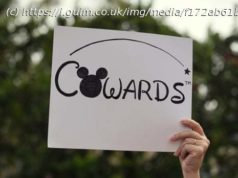Europe’s top court has dealt Nestle a major setback in its effort to trademark the shape of the four-finger KitKat.
Europe’s top court has dealt Nestle a major setback in its effort to trademark the shape of the four-finger KitKat.
The European Court of Justice (ECJ) dismissed an attempt by Nestle to overturn a ruling that it had not done enough to prove the chocolate bar’s shape deserved legal protection.
The ECJ said the European Union Intellectual Property Office should now reconsider its decision to grant the company a trademark in the first place.
Paul Berwin, a senior partner at Berwins Solicitors, said the ruling is likely to cost Nestle its trademark.
« Nestle would have to come up with some new argument [to keep the trademark], » he said.
Nestle ( NSRGF) has been fighting the trademark case for over a decade, trying to prevent other chocolate makers from replicating the shape of its iconic wafer.
The Swiss food and drink company originally secured a trademark for the shape from the European Union Intellectual Property Office in 2006. But that decision was disputed by rival confectionery firm Cadbury, which has since been acquired by Mondelez ( MDLZ).
A Mondelez spokesperson said: « We are pleased that the decision of the European Court of Justice supports our position. »
But Nestle said it was determined to keep fighting, and that the « distinctive shape » of its KitKat was deserving of protection.
Berwin said the case showed the power of trademarks.
« Companies like Nestle don’t throw money at issues for the sake of it — they have fought long and hard to try to maintain this trademark, because it has such value, » he said.
Even if it loses the EU trademark, Nestle can attempt to protect the shape in individual member states.
Nestle has previously secured a trademark for the KitKat shape in countries including Australia, Canada and France. Britain’s High Court refused to allow Nestle to trademark the shape in 2016.
It’s not the only issue that Nestle and Mondelez have sparred over in court. Nestle previously blocked an attempt by Mondelez subsidiary Cadbury to copyright a specific shade of purple.






